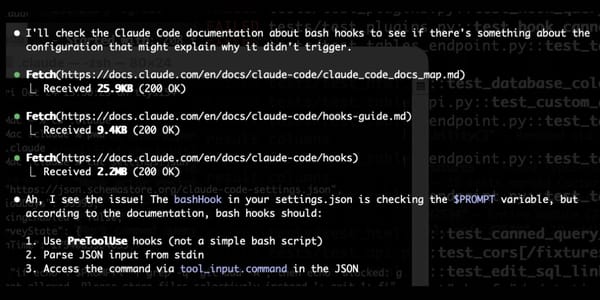Another Star Founder Joins AI Podcasting, Backed by Sequoia China — Will This One Make Waves?

Celebrity Entrepreneur + Top-tier VC: Can This AI Podcast Bet Succeed?

Cover image generated by AI
---
Background: Previous AI Podcast Attempts
Recently, several high-profile entrepreneurs have entered the AI podcast space:
- Zhang Yueguang launched ChatPods
- Jiao Ke launched Laifu

ChatPods and Laifu download data over the past 90 days (iOS + Android) | Source: Diandian Data
Results so far:
- ChatPods: 35,000 downloads globally (Sept), <$100 monthly revenue, limited active user data
- Laifu: ~2,000 downloads (Sept), no visible MAU or revenue
---
New Entrant: Ethan KJ Li’s Aibrary
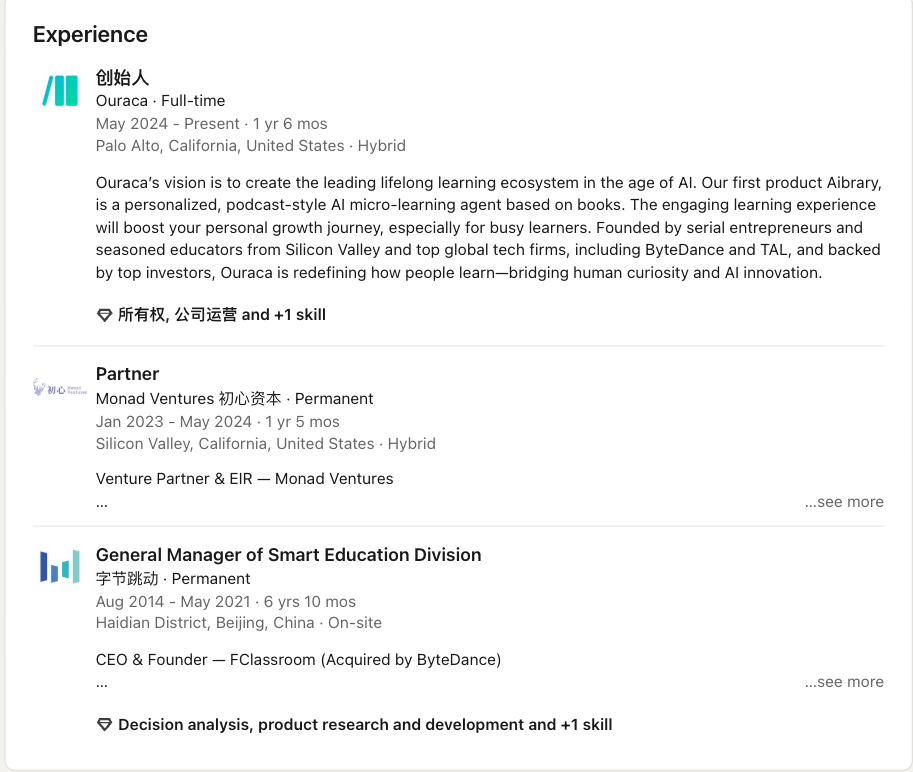
Ethan KJ Li’s career history | Source: LinkedIn
Ethan KJ Li — former CEO of ByteDance Smart Education — is approaching AI podcasts differently.
His product Aibrary:
- Soft launch: April 23 (U.S. App Store)
- Official release: Sept 23
- Core feature: Transform books into personalized podcasts + interactive learning paths
- Funding: Backed by Sequoia China, Chuxin Capital, Factorial Fund
Compared to earlier entertainment-focused AI podcast experiments (ChatPods, Laifu), Aibrary targets knowledge acquisition — similar to NotebookLM. The key is whether it can differentiate enough to compete.

---
I. Product Design: The Most Refined AI Podcast Experience Yet
Target & Differentiators
Aibrary focuses on personal learning and skill growth. Compared to NotebookLM and Speechify, it offers:
- A complete recommendation + content system
- Podcasts as the primary teaching format
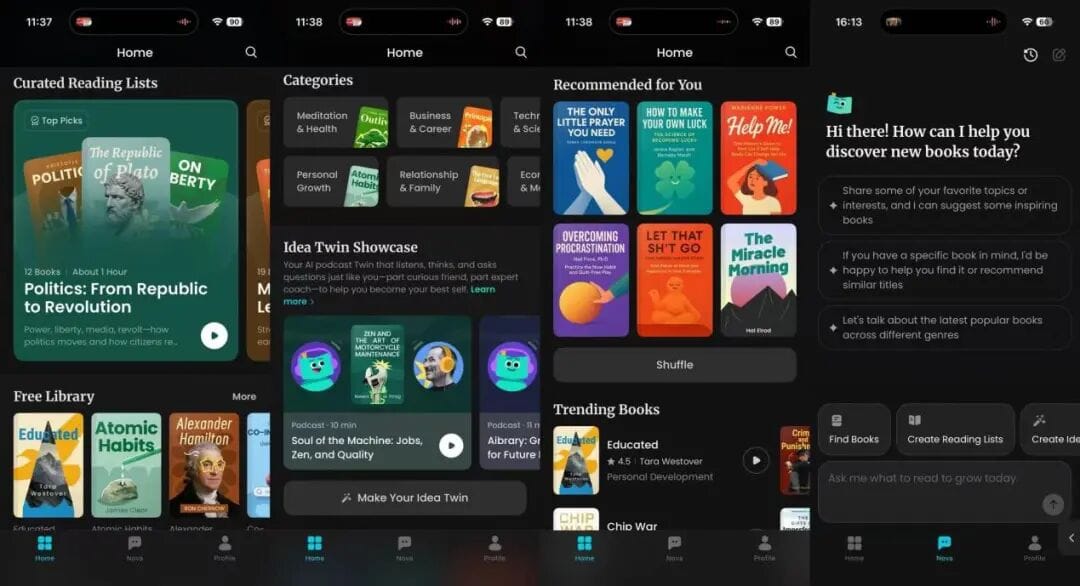
Homepage recommendations & “Nova” chatbot tab
User Onboarding
- 6-step signup: age, gender, interests, favorite celebrities, learning goals
- Personalized homepage recommendations via a tailored algorithm
- Search function for books by title/topic
Main Tabs:
- Homepage: Recommendation + search
- Nova: Chatbot interaction
- Profile: User account info
Chatbot Personas:
- Nova — main user interaction
- Orion — knowledge management (book queries, graphs)
- Atlas — goal breakdown & progress review
> Reality: Most dialogue handled by Nova, with limited Orion/Atlas input.
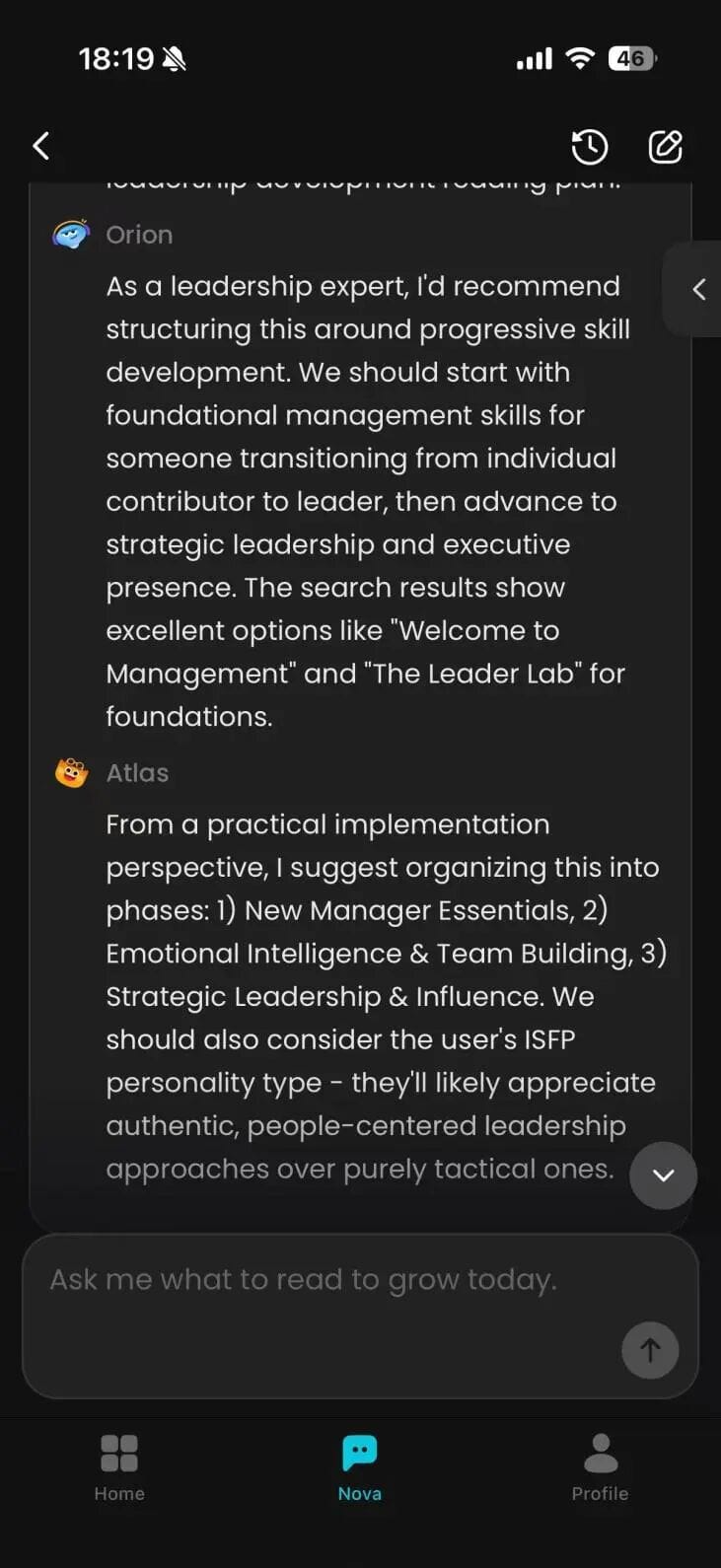
Orion and Atlas join in on complex queries.
---
Three Core Content Types
- Book Lists — curated recommendations
- Book Details — description, two audio segments (Summary & Podcast), purchase link
- Idea Twin Podcast — personalized, user-specific deep dive
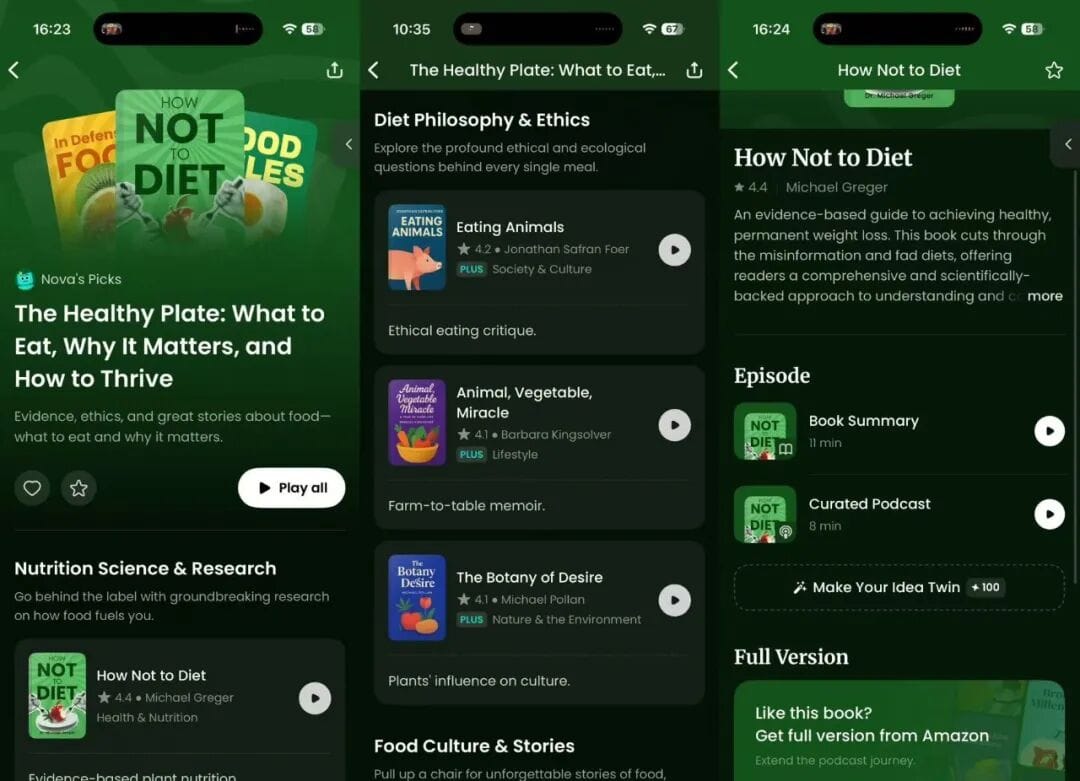
Book list examples (Figures 1, 2) and book details (Figure 3)
---
Audio Segments
- Summary: Monologue, ~8–10 min
- Podcast: Dialogue, ~8–10 min
- Copyright: Legal gray area — low risk (no original art, only derived summaries)
- Call to action: Buy on Amazon or generate Idea Twin Podcast
---
Idea Twin Podcast: Aibrary’s Unique Selling Point
The Idea Twin Podcast creates a two-person AI conversation between:
- AI Host
- User’s Digital Twin (cloned voice + profile)
Process:
- Select a book
- Choose AI host voice
- Fill in profile info (education, profession, MBTI, etc.)
- Clone voice
Cost: 100 Credits (non-subscribers: one podcast max)
Format:
- Host asks, twin answers
- Answers reflect input profile
- Immersion: Enhanced by voice cloning, but still feels “two AIs talking”
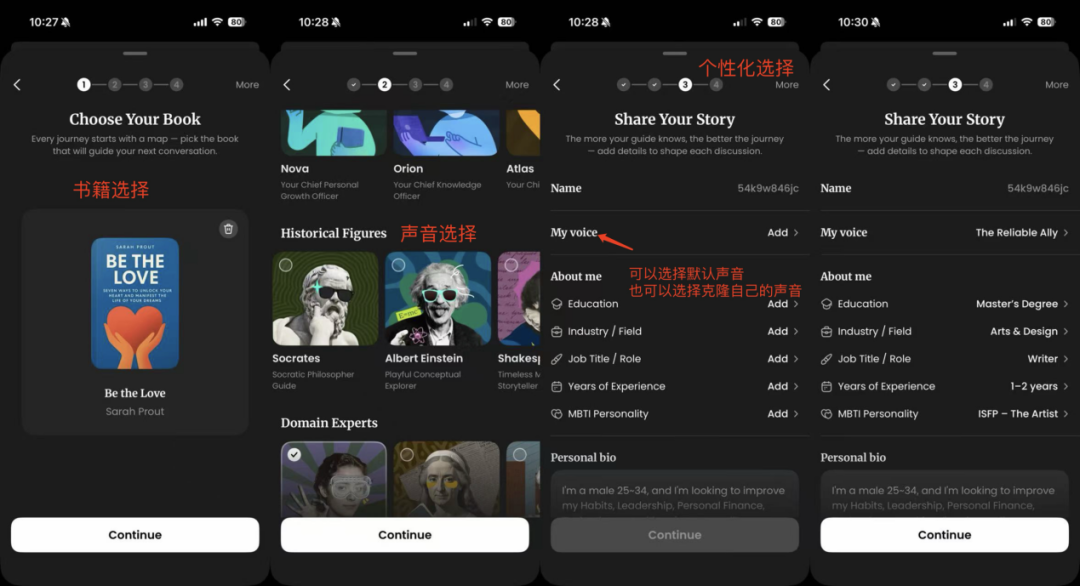
---
Positioning in the AI Podcast Market
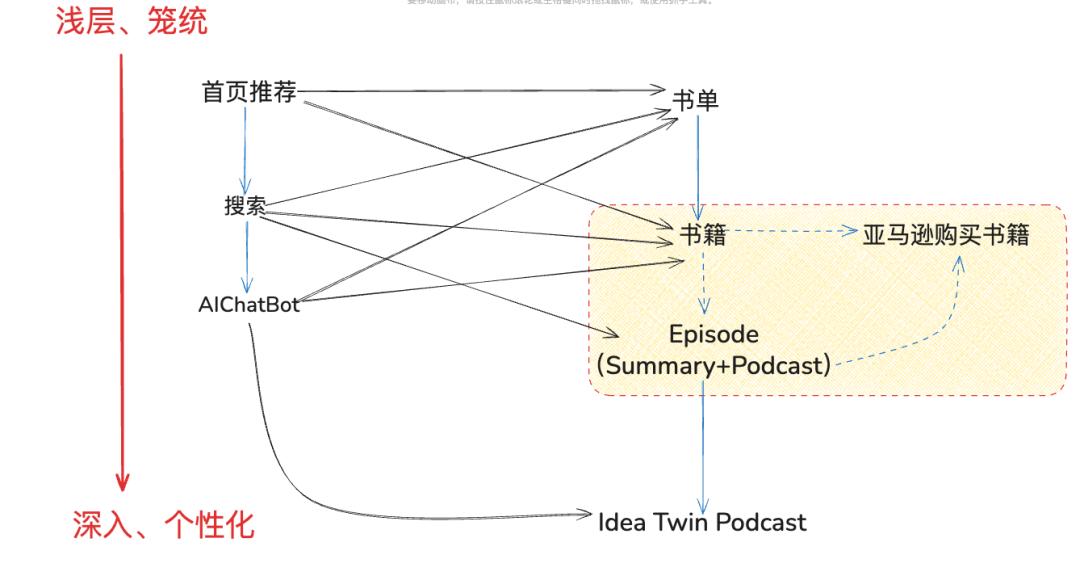
Aibrary — Function & Content Mapping | Produced by 白鲸出海
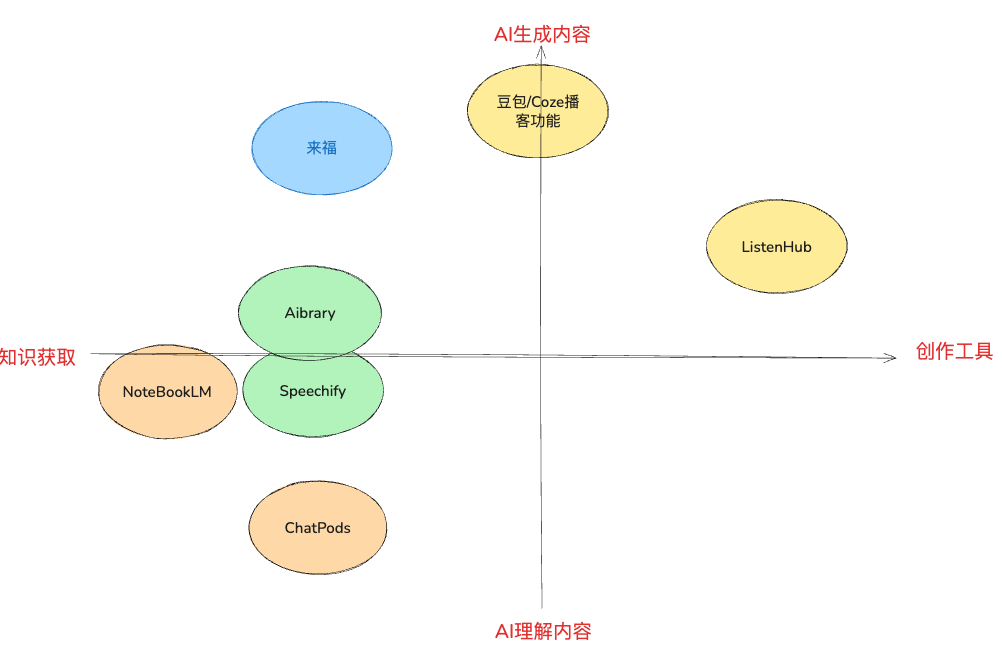
Market quadrant positioning of AI + audio podcast products
Differentiation:
- Doubao: Struggles with condensing books
- Speechify: Full narration only
- Aibrary: Short-to-long guided learning flow via podcasts
---
II. The Founders’ Pivot: From K12 to Lifelong Learning

Core Team:
- Li Kejia — ex-ByteDance Smart Education CEO
- Wu Jundong — ex-TAL Education strategic director
- Zhang Ximing — ex-ByteDance educational middleware lead
All have deep K12 backgrounds, now focused on adult lifelong learning — citing AI-era educational shifts:
- Answers are less important; critical thinking matters more
- Need to move from information delivery to cognitive restructuring
- Feedback loops are key to sustained learning
---
Aibrary’s Iteration Phases
- Build personalized recommendation
- Generate content to provoke thinking
- Construct customized learning workflows
Current status:
- Step 1 and 2 partly achieved
- Step 3 (feedback systems) still in development

---
Final Thoughts & Monetization Outlook
Pricing:
- $6.99/week or $89.99/year (7-day free trial)
- Cheaper than Audible ($159.99/year)
- Subscription required for most books
- Idea Twin Podcast consumes credits
Challenges:
- Need stronger feedback mechanisms
- Must prove immersive value of twin conversation
- Retention & willingness to pay still untested
---
Potential Synergy
Platforms like AiToEarn官网 may complement Aibrary’s model by enabling:
- AI-powered content generation
- Cross-platform publishing (Douyin, Kwai, Bilibili, Facebook, Instagram, LinkedIn, Threads, YouTube, Pinterest, X)
- Analytics + AI model ranking (AI模型排名)
---
References
- 100 Days in Silicon Valley — Reflections Before Aibrary Goes Live
- Ouraca: We Want to Redefine Lifelong Learning With AI
> Data from SimilarWeb, Diandian Data, Semrush, Guangdada, and other third parties; actual values may vary.
---
Do you want me to also create a concise 1-page executive summary version of this Markdown so it can be used for investor briefings? That would make the analysis instantly digestible.


